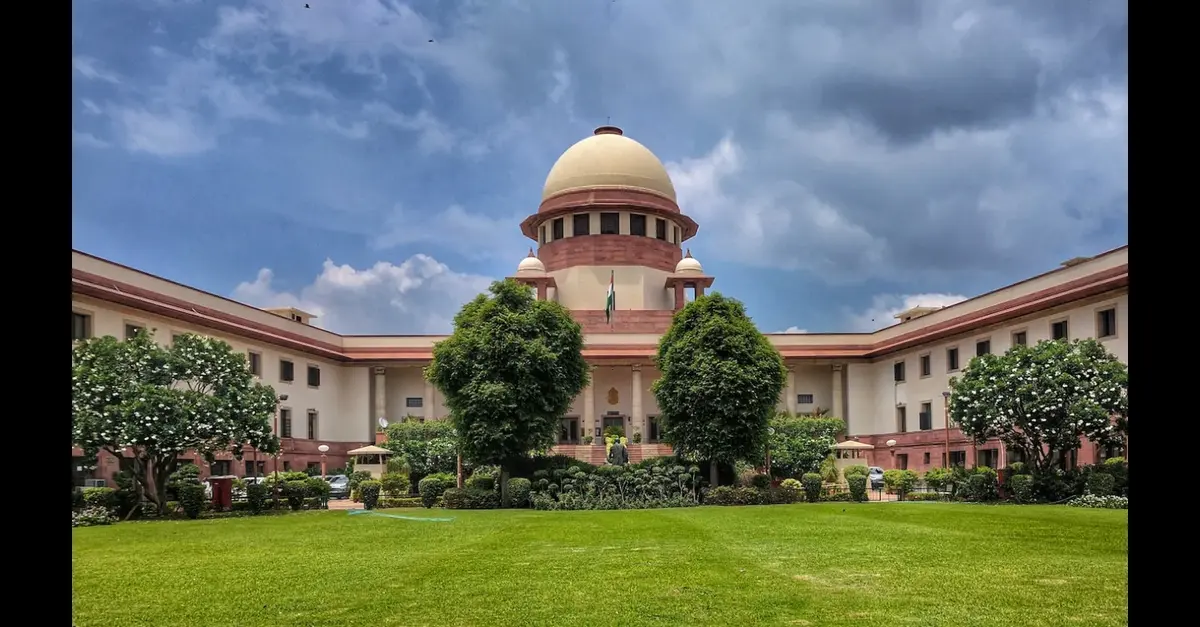REVALUING JUSTICE: SC RESTORES FIR IN FAKE GOLD LOAN
CONTROVERSY
Case Name: Abhishek Singh vs. Ajay Kumar & Ors.
Case Number: Criminal Appeal arising out of SLP (Crl.) No. 480 of 2025
Date of Judgment: 5th June, 2025
Quorum: Hon’ble Mr. Justice Sanjay Karol and Hon’ble Mr. Justice Manoj Misra
FACTUAL BACKGROUND
The current appeal stems from the ruling in Criminal Miscellaneous No. 67884 of 2023, dated
November 12, 2024, by the High Court of Judicature at Patna. In that case, the High Court
dismissed the FIR filed by the appellant, Abhishek Singh, under Sections 420, 406, and 34 of
the IPC and granted the respondents’ application under Section 482 of the CrPC in Mithanpura
P.S. Case No. 393 of 2023.
The High Court of Judicature at Patna’s decision in Criminal Miscellaneous No. 67884 of 2023,
dated November 12, 2024, is the basis for the current appeal. In Mithanpura P.S. Case No. 393
of 2023, the High Court granted the respondents’ application under Section 482 of the CrPC
and dismissed the FIR submitted by the appellant, Abhishek Singh, under Sections 420, 406,
and 34 of the IPC.
The bank then filed a fraud complaint against the appellant on May 22, 2023. Ajay Kumar
(Respondent No. 1), the Branch and Credit Manager at the time of revaluation, was among the
bank officials targeted in a second FIR after the appellant filed a complaint under Section
156(3) CrPC. The respondents requested a quashing from the High Court, which was granted,
while the investigation was still underway and a chargesheet had been filed.
The appellant, feeling wronged, went to the Supreme Court.
ISSUES FOR DETERMINATION
1. Was it incorrect for the High Court to dismiss the appellant’s Section 482 CrPC FIR
against the bank officials during the initial phase of the investigation?
2. Given the accusations in the FIR, was there a sufficient basis to move forward against
the respondents?
LEGAL PROVISIONS
• The Indian Penal Code, 1860, Sections 420, 406, and 34
• Section 482 of the 1973 Criminal Procedure Code
• Section 156(3) of the 1973 Criminal Procedure Code
• Article 21 of the Indian Constitution
APPELLANTS CONTENTIONS
• As of March 31, 2023, the loan account had been paid off, and there was no money left
over that would require the pledged gold to be revalued or put up for auction.
• By using irrelevant documents, such as defense materials, to suppress the FIR, the High
Court went beyond its authority.
• The appellant was not informed of the bank’s unilateral revaluation of the pledged gold,
which could have been tampered with or replaced.
• In contrast to the High Court’s conclusions, the complaint under Section 156(3) CrPC
was supported by an affidavit as required by law.
• The revaluation was conducted following full repayment, and the circumstances and
delay raise questions about the bank’s actions
• The allegation of internal bank manipulation is supported by the lack of action taken
against the original valuer.
RESPONDENTS’ CONTENTIONS
• According to internal fraud detection procedures, the gold was revalued, and the results
showed that it was fake.
• Since the loan wasn’t fully cleared until after the recall notice and with a considerable
delay, the revaluation was both required and legal.
• The respondents were solely in charge of the revaluation and had no role in authorizing
the initial loan.
• The appellant’s FIR lacked bona fide and was a retaliatory action.
• After discrepancies were found, the original valuer was removed from the panel.
COURT’S ANALYSIS
The Court held that the High Court erred in evaluating the complaint’s merits without
permitting the trial to proceed, citing Rajeev Kourav v. Baisahab and Naresh Aneja v. State of
U.P.
The Court concluded that:
• Following the loan’s complete settlement, the pledged gold was revalued without any
outside confirmation.
• The pledged gold remained in the bank’s custody after the initial valuation, and the
appellant never had access to it.
• Because these require evidence and a trial, the High Court’s conclusions regarding the
appellant’s intent and motives were speculative and premature.
• A prima facie case of fraud or misappropriation that merits further investigation and
trial was revealed by the FIR.
• The High Court’s allegation of a procedural error concerning the lack of an affidavit in
Priyanka Srivastava v. State of U.P. was factually false.
JUDGEMENT
The Supreme Court dismissed the High Court’s decision from November 12, 2024, and granted
the appeal. The criminal proceedings against the respondents were ordered to proceed in
accordance with the law, and the appellant’s FIR was reinstated.
The Court made it clear that it had not made any judgments regarding the respondents’ guilt or
innocence and that the trial court would make those decisions in light of the available evidence.
CONCLUSION
The ruling restates the High Court’s restricted authority to dismiss criminal cases at the
threshold. Even if the allegations are related to a business transaction, the case must go to trial
if they reveal a cognizable offense. The Court emphasized the complainant’s right to pursue
remedies when there is a prima facie allegation of fraud or misappropriation, particularly when
financial institutions are involved.
“PRIME LEGAL is a full-service law firm that has won a National Award and has more than
20 years of experience in an array of sectors and practice areas. Prime legal falls into the
category of best law firm, best lawyer, best family lawyer, best divorce lawyer, best divorce
law firm, best criminal lawyer, best criminal law firm, best consumer lawyer, best civil
lawyer.”
WRITTEN BY GOURI CHOLAYIL RAJEEV


